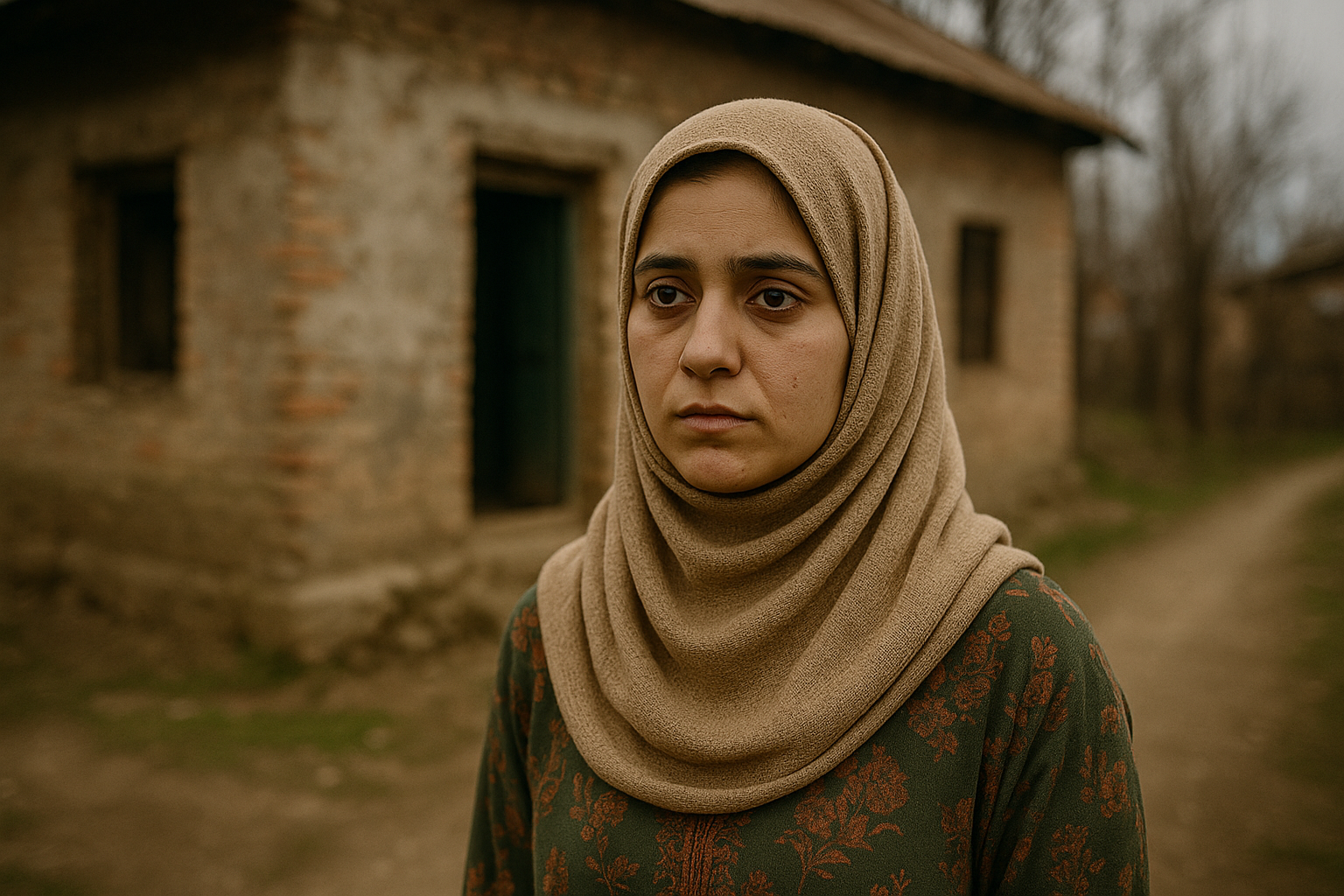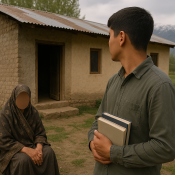
Asima
Background
In the small village of Pinjora, Shopian, a young woman’s life story is that of a complex challenge that children face in kinship care arrangements.
Asima (Name Changed), now 22 years old, carries the weight of a childhood marked by loss, responsibility, and silent struggles.
Her narrative provides crucial insights into the often-overlooked complexities of kinship care systems and their impact on children’s development, rights, and future prospects.
The Path to Kinship Care
At the age of seven, Asima’s life took a dramatic turn when her father, a daily wage labourer, fell ill and died. Her mother was left with three young children and no source of income, facing mounting financial pressures and social stigma.
The situation reached a breaking point when community speculation about her character became unbearable, leading to a desperate decision: placing her children – Asima (7), and her brothers (5)—under their paternal uncle’s care before remarrying six years later.
Life under Kinship Care
What followed was far from the nurturing environment kinship care aims to provide. Asima’s childhood evaporated into a haze of household responsibilities:
The children faced multiple deprivations
Despite passing her graduation, Asima’s higher education was not possible due to a lack of financial support
The basic needs, such as medical treatment for Asima’s kidney stones, were not met
Her brother’s self-harm attempt after false accusations of theft shows the intensity of their emotional pain
Their father’s assets, an orchard and house, were in the hands of their uncle, and there was no information about the earnings or management.
Critical Analysis
This case has several systemic issues in kinship care arrangements:
Kinship placements are normally considered stable alternatives to institutional care. This case, however shows how placement stability does not ensure quality care. The children had a roof over their heads but were still experiencing material, emotional, and developmental deprivation.
The fear of expulsion from home creates a power imbalance that would make the children avoid advocating for their rights or seeking help in ensuring their rights.
The case shows a critical gap in the protection of children’s inherited property rights, showing how vulnerable children can be effectively disinherited through informal kinship arrangements.
The lack of nurturing care and constant emotional stress has affected the children’s ability to develop decision-making skills and healthy self-identity, potentially impacting their adult lives.
Recommendations
Based on this case study, several recommendations emerge:
Within the kinship care arrangements, child welfare agencies need to put in place strong monitoring systems that help assess the emotional, educational, and physical well-being of the children.
Legal mechanisms should be put in place regarding the inheritance rights of children placed in kinship care and their asset management accounts should undergo regular audit.
Sufficient financial and psychological support should be provided to kin caregivers to enable them to deliver quality care without resenting or straining on their resources.
Safe channels for children in kinship care to report concerns without fear of repercussions must be established and maintained.
Conclusion
Asima’s case debunks the myth that kinship care is automatically the best alternative to parental care. While it is true that keeping children within family networks remains important, this case clearly highlights the critical need for support systems, monitoring, and robust child protection mechanisms in kinship care arrangements. The success of such placements does not only depend on the availability of relative caregivers but also on their capacity and willingness to provide nurturing care that promotes children’s rights and well-being.




